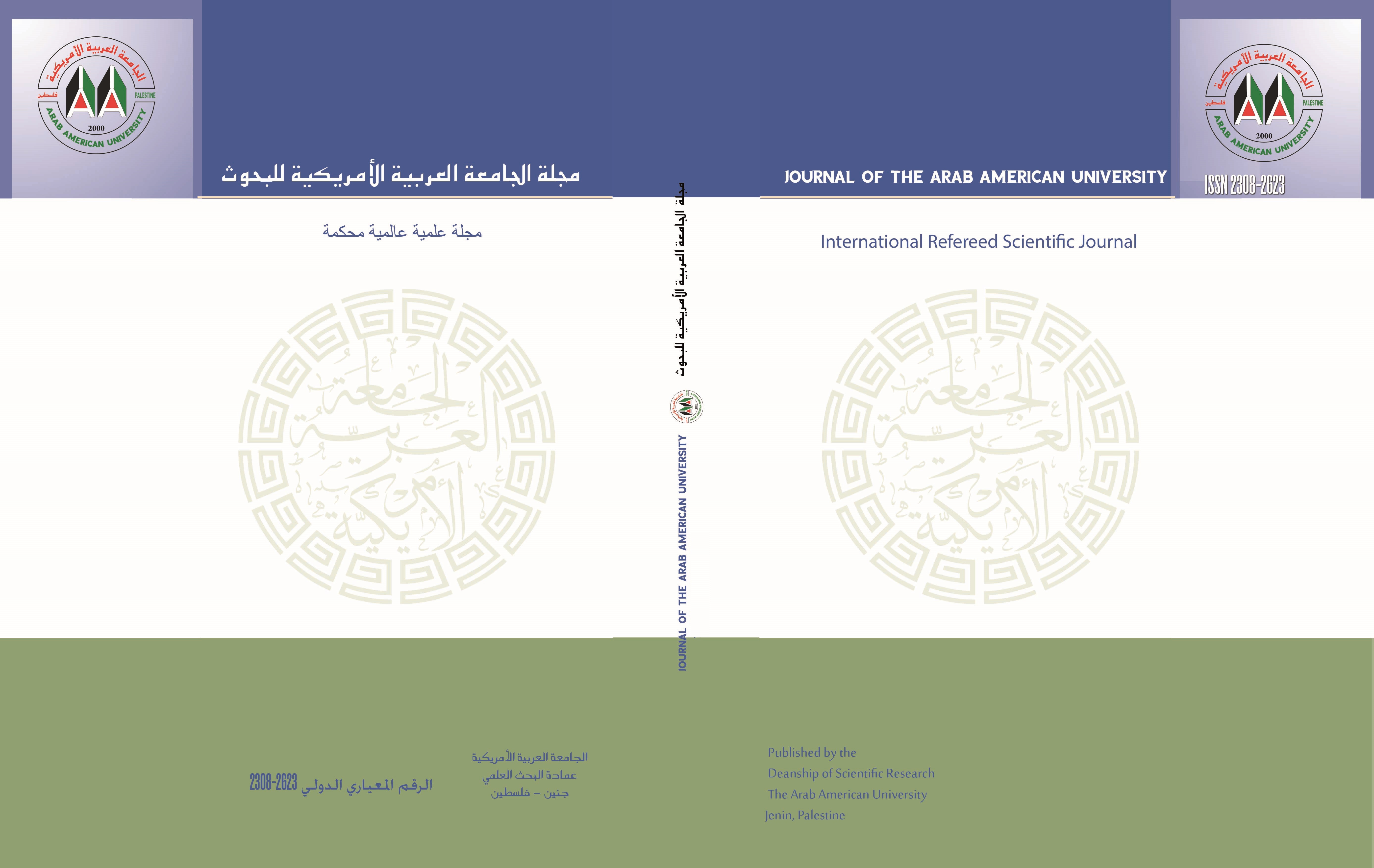Journal of the Arab American University مجلة الجامعة العربية الامريكية للبحوث

Abstract
L-2-Hydroxyglutaric aciduria is a rare autosomal recessive neurometabolic disorder caused by deficiency of L-2-hydroxyglutarate dehydrogenase. This enzyme catalyses the conversion of L-2-hydroxyglutarate to alpha-ketoglutarate and its deficiency causes accumulation of L-2-hydroxyglutarate which is s toxic to the brain leading to the leukoencephalopathy.
The researchers reported a novel mutation in the L2HGDH gene in two siblings with L-2-Hydroxyglutaric aciduria and described clinical phenotype. The symptoms were presented with developmental delay, cerebellar ataxia, tremor and speech regression. Urine organic acid analysis revealed massive excretion of 2-Hydroxyglutaric acid. Brain magnetic resonance imaging showed the characteristic leukodystrophy involving the subcortical cerebral white matter and dentate nucleus, sparing the basal ganglia. Genetic analysis of L2HGDH gene showed that they were homozygous for the novel mutation chr14:50,750, 731 c.560_561insATTG (p.C187XfsX1) in exon 5 of L2HGDH gene. Both patients showed symptomatic response to riboflavin and levocarnitine therapy.
Conclusion: This report further expanded the genetic spectrum of L-2-HGA and suggested a successful response to treatment with levocarnitine and riboflavin.
Recommended Citation
Dweikat, Imad; Abu Libdeh, Bassam; Abu-Libdeh, Iman; Ashhab, Motee; and Zitawi, Haneen
(2024)
"L-2-Hydroxyglutaric aciduria in two Palestinian siblings with a novel mutation in the L2HGDH gene,"
Journal of the Arab American University مجلة الجامعة العربية الامريكية للبحوث: Vol. 10:
Iss.
1, Article 10.
Available at:
https://digitalcommons.aaru.edu.jo/aaup/vol10/iss1/10

